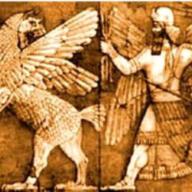How can I find scriptures that are not in the bible?
2016-01-12 9:33 pm
In the beginning there were 36 scriptures about Jesus Christ but in the end only 4 made it into the bible...u see I'm a christian and I just wonder what kind of knowledge we are all missing out on when we dont know what's in them...like it might be something crucial to know...does anybody have an idea how I could find those scriptures or at least part of them?like if there is places they are written down or something?
回答 (8)
2016-01-12 10:39 pm
✔ 最佳答案
In most cases, the reason those other scriptures are not in the Bible is pretty clear once you read them. They tend to be fanciful extensions of the story, and those who read them concluded they weren't helpful or weren't consistent with the Christian teaching passed down from the Apostles.But most are available in English. Quite a few were products of the Gnostic branch of Christianity (which primarily got its ideas from a peculiar philosophical group, and grafted on the Christian story). The Christian Gnostics were regarded as heretics from about the third century, but thanks to a fortuitous cache of their early literature in Coptic Egyptian versions, which came to light last century, we now have many of their writings. Look for a collection entitled "The Nag Hammadi Library."
One Gnostic text was even harder to find. A manuscript--somewhat damaged as it was passed around by people hoping it would make them rich--has come to light. Look for "The Gospel of Judas." (And yes, that does refer to Judas Iscariot.)
Quite a few other early Christian texts were well-known in the fourth and fifth centuries, when the New Testament canon was settled. Many of these are available, in somewhat old translations, in a collection called "The Lost Books of the Bible." Among other curiosities, they include "The Shepherd of Hermas" and "The Epistle of Barnabas" (both highly regarded among early Christians, but not accepted as apostolic in origin); "The Gospel of Nicodemus" (also called "The Acts of Pilate"), which later was connected to the Holy Grail story by Robert de Borron; and the "Gospel of the Infancy of Christ" and some material concerning Mary, which was extensively mentioned by Muhammad in the Qur'an.
One item we no longer have is the so-called Q source, which supplied a lot of the material common to the gospels of Matthew and Luke. (But some modern writers have had the hubris to publish purported reconstructions of it.)
Another item we no longer seem to have is the gospel in Hebrew, mentioned by the second-century Christian writer Papias (although we only have HIS material second-hand, through Eusebius) and attributed to either Matthew or Matthias. It's the reason the first canonical gospel is mistakenly named for Matthew, though it clearly isn't the one Papias was discussing. But it seems likely the half or so of Luke that isn't derived from Mark or from Q, and the overall chronology he used, are based on the Hebrew Gospel, in a very direct translation to Greek from Hebrew.
參考: For information on the Hebrew Gospel, see "The Hebrew Gospel and the Development of the Synoptic Tradition" by James R. Edwards.
2016-01-12 9:37 pm
Most of them no longer exist. The church routinely destroyed all heretical works they could lay their hands on. Others occasionally pop up in unexpected archaeological finds like the Dead Sea scrolls.
2016-01-12 10:20 pm
Search on apocryphal books of the Bible. There are many instances still existing. My take on the whole thing is God is everywhere and there is no need for established religions. I mean you can talk to God anytime you want, anywhere you are, why do you need a middleman? To me Religion = MONEY/POWER! That is the whole of the law. GOD DOESN'T NEED A HANDOUT!
2016-01-12 9:34 pm
Unless you refer to the apocrypha/pseudoepigrapha then there are no others. And these were excluded from the canon of scripture for good reason. They were not God-inspired.
2016-01-14 10:25 am
Since you *are* a Christian i assume you're mainly looking for the scriptures *not* in the Bible that will give you *genuine* Further Teachings of Christ.
The Gospel that was most likely written (in its earliest form) -- at about the time Paul was writing his Epistles -- so *before* all the canonized Gospels were written -- would be "The Gospel According To Thomas."
The *next* most important one, to my view (having read most of them -- some of them a half a dozen times) would be "The Gospel of Phillip" -- which also preserves some genuine teachings of Jesus and of one of the earliest gatherings of Christians (probably written a decade or so later than the canonized Gospel of John).
After that i would suggest "The Apocryphon of James".
The rest of them get further & further away from what the historical Yeshua probably taught.
You can find these here:
http://www.gnosis.org/naghamm/gop.html
The Gospel that was most likely written (in its earliest form) -- at about the time Paul was writing his Epistles -- so *before* all the canonized Gospels were written -- would be "The Gospel According To Thomas."
The *next* most important one, to my view (having read most of them -- some of them a half a dozen times) would be "The Gospel of Phillip" -- which also preserves some genuine teachings of Jesus and of one of the earliest gatherings of Christians (probably written a decade or so later than the canonized Gospel of John).
After that i would suggest "The Apocryphon of James".
The rest of them get further & further away from what the historical Yeshua probably taught.
You can find these here:
http://www.gnosis.org/naghamm/gop.html
2016-01-12 10:59 pm
Gospel of Mary, Gospel of Thomas, the Q gospel - these and others are part of what is known as the Gnostic Gospels, and you can probably find copies on Amazon.com
2016-01-12 9:42 pm
If you are referring to the four Gospels ... no, there were not 36 to begin with.
There were four to begin with and many others were added over the next couple of hundred years.
There were four to begin with and many others were added over the next couple of hundred years.
2016-01-12 10:19 pm
If God wanted the missing scriptures in the Bible he would have made sure they were included.Forget about them if they exist and accept what the Bible is.
收錄日期: 2021-04-21 16:17:18
原文連結 [永久失效]:
https://hk.answers.yahoo.com/question/index?qid=20160112133350AAaU3yW


